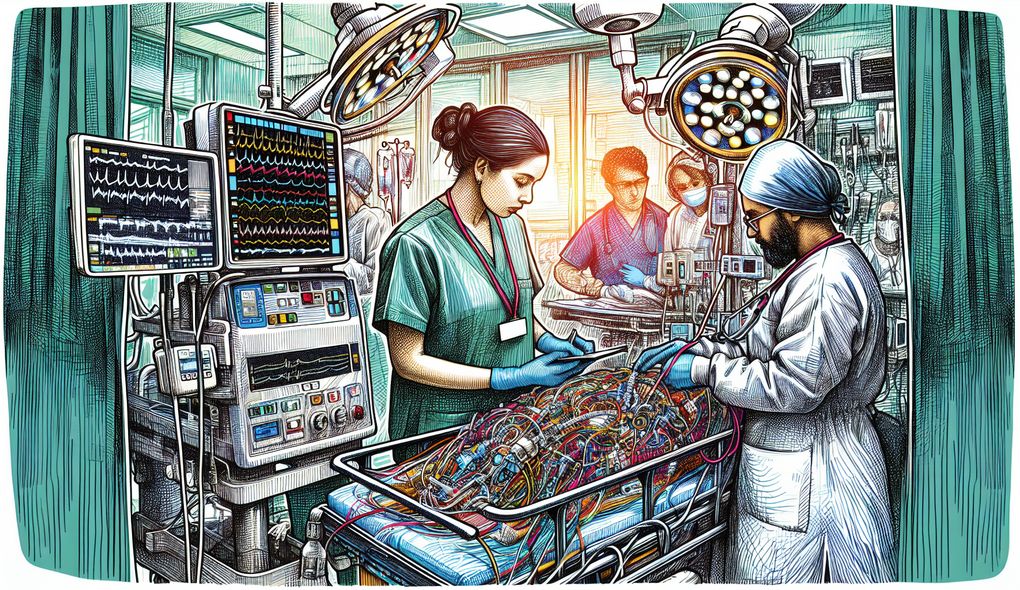Tell me about a time when you faced an ethical dilemma in critical care medicine. How did you handle it?
JUNIOR LEVEL

Sample answer to the question:
I faced an ethical dilemma during my time in critical care medicine when a patient's family requested that we continue aggressive treatment for their loved one, despite the patient having a very poor prognosis. It was a challenging situation as we had to balance the family's wishes with our medical expertise and the best interest of the patient. I handled it by having an open and honest conversation with the family, explaining the severity of the patient's condition and the limited chances of improvement. I also involved the hospital's ethics committee to ensure a comprehensive and unbiased decision-making process. Ultimately, we reached a consensus where we provided comfort care and implemented measures to keep the patient pain-free and comfortable.
Here is a more solid answer:
During my time in critical care medicine, I encountered an ethical dilemma when a patient's family insisted on pursuing aggressive treatment despite the patient's poor prognosis. It was a complex situation that required me to utilize my clinical skills, communication skills, and decision-making abilities. I initiated a meeting with the family to understand their concerns and desires. I empathetically explained the patient's critical condition, the risks of continuing aggressive treatment, and the potential benefits of transitioning to comfort care. I actively involved the hospital's ethics committee to ensure a fair and unbiased decision-making process. Together, we reached a consensus to provide comfort care and optimize the patient's quality of life. This experience highlighted the importance of working effectively in a multidisciplinary team and the need for continuous professional development to navigate ethical challenges in critical care medicine.
Why is this a more solid answer?
The solid answer provides specific details of the ethical dilemma faced, the actions taken, and the outcome. It demonstrates the candidate's clinical skills, communication skills, and decision-making abilities. It also addresses their ability to work effectively in a multidisciplinary team and their dedication to continued medical education and professional development. However, it can be further improved by including examples of collaborating with other healthcare professionals and discussing the emotional intelligence required to handle severe illness and end-of-life care.
An example of a exceptional answer:
I encountered a significant ethical dilemma during my tenure as a critical care medicine physician. A patient in the ICU was suffering from a terminal illness and had expressed their desire to pursue palliative care. However, their family strongly disagreed, believing that every possible measure should be taken to prolong the patient's life. This created a conflict between respecting the patient's autonomy and addressing the family's concerns. To handle this complex situation, I engaged in open and empathetic communication with both the patient and their family. I listened to their perspectives, acknowledged their emotions, and explained the physical and emotional toll of aggressive treatments on the patient. I organized a family conference involving the ICU team, ethics committee, and palliative care specialists to foster a collaborative decision-making process. Through thoughtful discussions, we reached a consensus to transition the patient to comfort care while providing emotional support to the family. This experience reinforced the importance of integrating medical expertise with compassion and empathy in critical care medicine. It exemplifies my clinical skills, communication skills, decision-making abilities, and high emotional intelligence required in navigating ethical dilemmas.
Why is this an exceptional answer?
The exceptional answer provides a detailed and comprehensive account of the ethical dilemma faced, the actions taken, and the outcome. It demonstrates the candidate's exceptional clinical skills, communication skills, decision-making abilities, and high emotional intelligence required in critical care medicine. The answer highlights the candidate's ability to integrate medical expertise with compassion and empathy. It also showcases their dedication to advocating for patient autonomy and collaborating with various stakeholders in a multidisciplinary team. This answer goes above and beyond in addressing the evaluation areas and aligning with the job description.
How to prepare for this question:
- Reflect on past experiences in critical care medicine that involved ethical dilemmas and think about the key takeaways from those situations.
- Consider how you effectively communicated and collaborated with other healthcare professionals and stakeholders in resolving ethical dilemmas.
- Highlight instances where you demonstrated empathy, compassion, and high emotional intelligence in critical care settings.
- Stay updated on ethical guidelines, principles, and best practices in critical care medicine.
- Practice discussing your ethical decision-making process and the values that guide your actions.
What are interviewers evaluating with this question?
- Clinical skills
- Communication skills
- Decision-making
- Ability to work in a team

